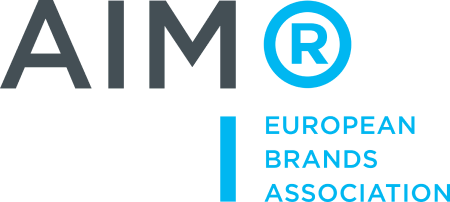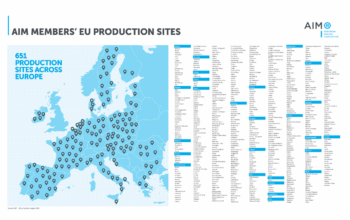
Persistent upheaval in the global economy has had a significant impact on the European consumer goods industry, a survey of manufacturers in the food/beverages, homecare and personal care consumer goods sectors published today by AIM, the European Brands Association, shows.
Supply chain disruptions and cost inflation are among the main factors putting pressure on manufacturers, particularly small and medium-sized enterprises (SMEs). A survey of 664 manufacturers has shown that cost inflation has been driven by higher energy costs, as more than half of the surveyed companies (56%) said that their energy costs rose by at least 30%. Over a quarter of the companies (27%) said that they had to absorb energy cost increases of 60%. However, other costs have also multiplied, with over one third (36%) of companies experiencing over 30% cost inflation in packaging. Transport and logistics have soared by over 30% for some in the industry.
“Whilst the focus of cost inflation is on energy, the survey shows it is beyond energy, with cost inflation on raw materials, packaging, transport and logistics also a challenge”, said Michelle Gibbons, Director General of AIM. “It shows that 96% of consumer goods manufacturers have had to absorb unplanned costs in 2022, which has inevitably had an impact on production, as well as planned investments for this year.”
The succession of crises over the past two years, with the global pandemic, the war in Ukraine, and now energy and cost inflation crises, has led to increased challenges in ensuring that the necessary raw materials and ingredients reach production sites to be transformed and ultimately delivered to European consumers. No less than three quarters of the companies surveyed (75%) have experienced challenges to source commodities and raw materials.
Consumer goods manufacturers have been particularly hit by supply chain disruptions and cost inflation because they are at the centre of the value chain, working upstream with suppliers to source raw materials, components, and packaging, as well as downstream with retailers and distributors to ultimately ensure supply for consumers. Confronted with increased and unexpected costs, manufacturers have been negotiating with retail customers to responsibly reflect part of these increased costs into their pricing. Only 4% of companies surveyed have been able to pass on the full cost of inflation, leaving 96% absorbing unplanned costs in 2022.
Distributors’ outright refusal to help absorb some of the additional costs has led to difficulties, particularly because retail markets are concentrated, and manufacturers often rely on just a few main retailers. In this context, some manufacturers who fail to agree on passing on cost inflation are reducing production to avoid insolvency. The survey also reveals that some international retailers are increasing consumer prices beyond what is negotiated at a wholesale level with manufacturers.



